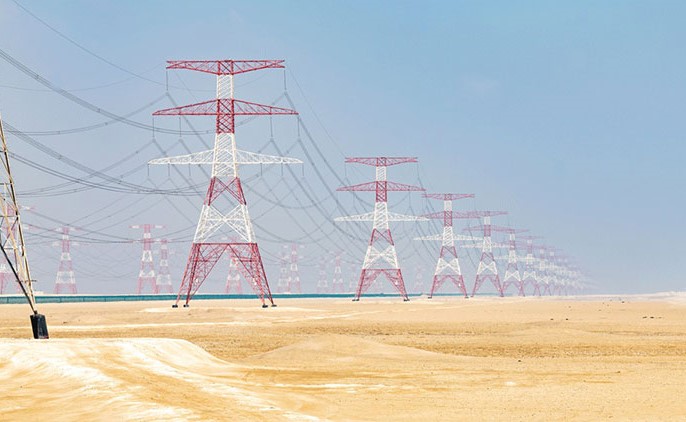MEED magazine recently reported on the significant growth of the energy sector in Kuwait and the Middle East and North Africa (MENA) region. Over the past decade (2013-2023), Kuwait awarded contracts for power generation projects worth $3.916 billion and energy transmission projects worth $7.229 billion, totaling $11.145 billion. This places Kuwait as the third-largest Gulf market in this field, following Saudi Arabia and the UAE.
In the broader MENA region, contracts for energy generation and transmission projects valued at approximately $25.3 billion were awarded between January and November 2023. This momentum is expected to continue in the coming years, although it is important to note that this number is smaller compared to the record value of projects awarded in 2015, which amounted to $37.7 billion. Nevertheless, it represents a 38% increase compared to the awards for the entire year of 2022, according to data from MEED Projects, a trusted source for tracking regional project activity.
On an annual basis, the value of power generation contracts awarded increased by 40% to $19 billion, surpassing the growth rate of the transmission subsector by approximately 9%. This growth is significant, especially considering the challenges faced globally in the wake of the COVID-19 pandemic.
Contrary to the trends observed in the past two years, Kuwait, the Emirates, and Oman were awarded substantial power generation contracts in 2023, following Saudi Arabia, which concluded 60% of power generation contracts in the region during the same year, as reported by Med Projects. This indicates a shift in the market dynamics and highlights the growing investment in the energy sector across multiple countries in the region.
Looking ahead, MEED magazine predicts that the energy sector in the MENA region will maintain its momentum in 2024. The magazine revealed that tender documents are being prepared for two power generation projects in Riyadh and Khafji with a combined capacity of 3.6 gigawatts. Additionally, Kuwait and Qatar are progressing with the commissioning phase of independent water and electricity production projects that had been postponed in recent years. These developments present opportunities for various stakeholders, including gas turbine manufacturers.
While there is a preference in the region, particularly among the Gulf Cooperation Council countries, for products made in European Union countries, MEED points out that Chinese gas turbine manufacturers also have opportunities in the market. However, it is worth noting that the demand for gas turbines may experience a decline after 2024. Project owners and facility developers are becoming increasingly conscious of their obligations related to reducing carbon emissions, which may impact the long-term demand for gas turbines.
According to available data, Iran, Algeria, Kuwait, the Emirates, and Qatar are identified as major markets for projects in the bidding stage. Additionally, Morocco, Egypt, Kuwait, and the Emirates are considered the most promising markets, after Saudi Arabia, for projects in the study, design, and pre-qualification phase. This highlights the diverse opportunities for investment and growth in the energy sector throughout the region.
Looking further into the future, Saudi Arabia is expected to continue dominating the electricity sector projects in the region. The country is actively pursuing renewable energy projects and aims to cover half of its production capacity with renewable sources by 2030. Vision 2030, Saudi Arabia’s ambitious development plan, includes projects such as NEOM, Red Sea, and Amala, along with a cost-effective manufacturing program worth several billion dollars.
In conclusion, the energy sector in Kuwait and the MENA region is experiencing significant growth, with increased investment in power generation and energy transmission projects. While the market dynamics are evolving, opportunities abound for various stakeholders. As the region continues to prioritize sustainability and reduce carbon emissions, the future of the energy sector holds both challenges and opportunities for all involved.







